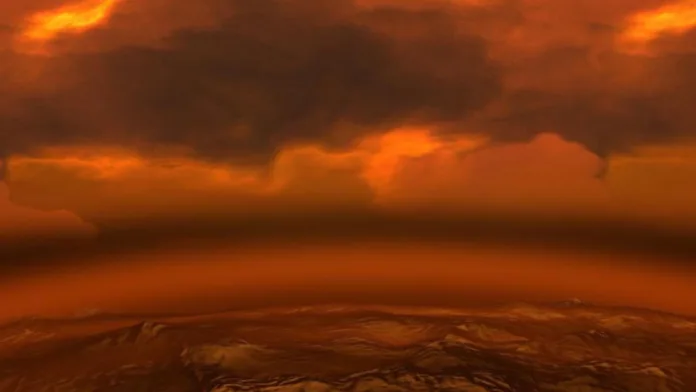Summary
- Investigating Venusian Biochemistry: Modern science is questioning the conventional wisdom that life needs water as its primary solvent by examining the stability of amino acids in concentrated sulfuric acid cloud in order to investigate Venus’s potential habitability.
- Resilience of Amino Acids: The building blocks of life, amino acids, have been found to remain stable in acidic clouds. This finding raises the possibility that there are other biochemistries besides Earth’s typical conditions that support life.
- Researchers studying concentrated sulfuric acid as a possible solvent for life are broadening their search for extraterrestrial life to include environments with different chemical compositions. The research is being conducted by Janusz Pętkowski of MIT.
- Cloud-Cloaked Venus: The study looks at the sulfuric acid-filled clouds covering Venus, analyzing the different acid concentrations and the constant supply of organic material from meteorites, raising the possibility that there may be a habitable zone in the planet’s atmosphere.
- The Morning Star Initiative is a pioneering initiative that aims to solve mysteries about Venus by investigating the possibility of alien biochemistry and providing guidance for future missions to this mysterious celestial neighbors. One of its missions is the Venus Life Finder mission, which is scheduled to launch soon.
Table of Contents
Introduction
Venus is considered Earth’s sister planet in the vastness of our solar system. On the other hand, new findings have caused a paradigm to shift, indicating that life may potentially exist beneath Venus’s sulfuric-acid clouds. This groundbreaking study challenges our preconceived notions about the prerequisites for life beyond Earth, while also signaling the emergence of a new field of astrobiology.
Amino Acids: The Building Blocks of Life
The Venus study, which was published in the journal Astrobiology, makes an amazing discovery: concentrated sulfuric acid does not change the structure of amino acids, which are the basic building blocks of proteins and are necessary for life as we know it. Astrobiologists now have a plethora of options to consider, leading them to wonder if life could survive in drastically different biochemistry conditions.

Life’s Liquid Medium: Beyond Water
Massachusetts Institute of Technology (MIT) research affiliate Janusz Pętkowski questions the widely held notion that water is the only liquid medium that supports life. Acknowledging the necessity of liquid for life to exist, Pętkowski investigates concentrated sulfuric acid’s potential as a life-sustaining solvent. The investigation explores the stability of 20 biogenic amino acids in this distinct setting, broadening the scope of physiologically significant compounds that may be involved in Venusian biochemistry.
Also Read: Halo-Orbit Insertion: Aditya-L1’s Precision Mission at Lagrange Point L1
Sulfuric Acid Clouds: A Possible Alien Life Haven?
For ages, scientists have been fascinated by Venus and its sulfuric acid-filled clouds. These clouds contain between 81% and 98% acid, with water making up the remaining content. The research team hypothesizes that a potentially habitable environment could be created in the Venusian clouds by the continuous delivery of amino acids and other organics through meteoritic material, combined with liquid droplets of concentrated sulfuric acid.
Investigating the Potential of the Morning Star Initiative
As part of the Morning Star Missions to Venus initiative, Pętkowski and his colleagues seek to unravel the mysteries surrounding Venus. Launched in 2025, the Venus Life Finder mission will look for organic material at various altitudes within cloud-layer particles. The intention is to comprehend the possibility of intricate chemical processes and possibly the presence of extraterrestrial biochemistry within the layers of the Venusian cloud.
Consequences for the Future and Conclusion
The focus on Venus as a possible home for life challenges us to extend our understanding of habitability as we enter a new era of exploration. In addition to providing guidance for upcoming missions, the research makes us reevaluate the prerequisites for extraterrestrial life. Venus’ sulfuric-acid clouds may harbor alien biochemistry, which raises intriguing possibilities and a plethora of questions that entice us to investigate the vast potentialities that await us among our planetary neighbors. Venus, formerly thought of as Earth’s “Evil Twin,” may have the answer to questions about the diversity and beginnings of life in our solar system.
Disclaimer:
AI was used to conduct research and help write parts of the article. We primarily use the Gemini model developed by Google AI. While AI-assisted in creating this content, it was reviewed and edited by a human editor to ensure accuracy, clarity, and adherence to Google's webmaster guidelines.


